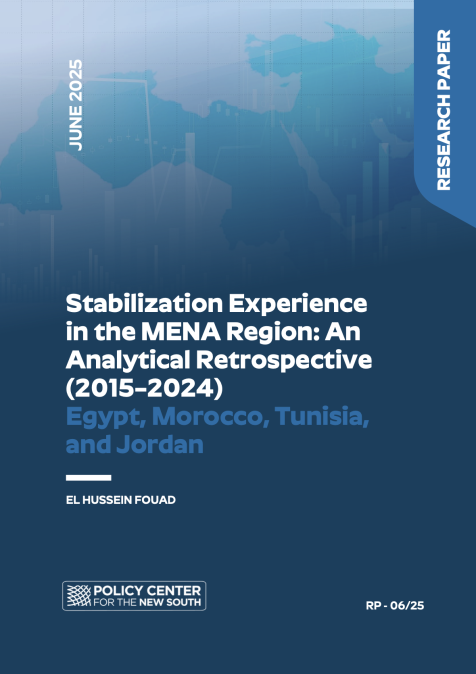The Political Economy of Inclusive Growth in MENA: Understanding the Challenges and Opportunities
The International Monetary Fund (IMF) and the Policy Center for the New South (PCNS) organized a joint event titled “Renewing the Dialogue on Inclusive Growth in MENA: Re-Framing the Debate and Setting the Agenda” took place on Friday 16th of June 2023, started at 10:30 am (Rabat time GMT+1) at the Policy Center for The New South’ HQ, at Mohammed VI Polytechnic University campus, Rabat, Morocco. The event hold in two sessions: a panel discussion under the theme “The Political Economy of Inclusive Growth in MENA: Understanding the Challenges and Opportunities” and a closed-door experts roundtable to delve deeper on “The Role of Multilateral Organizations in Promoting Inclusive Growth in the Region.” Despite gains in poverty reduction, literacy and lifespans, many MENA economies have struggled to ensure that the benefits of economic development accrue equally to all segments of their population. Among the main issues that remain unresolved are the high share of inactive youth, large gaps in economic opportunities for women, fragmented social protection systems, and underdeveloped private sectors with tight regulation and limited access to credit that stifle the creation of new firms and growth in output, employment, and incomes. The recent confluence of negative shocks threatens to widen these gaps. The pandemic has pushed additional 75 million people over the world into extreme poverty in 2021, and its impact has been felt especially by the low-skilled, the young, women, refugees, and migrant workers. Higher commodity prices and the spike in inflation have exacerbated this phenomenon, adding to the challenges facing the poor and resulting in increased food insecurity. The greater demand for protection and recovery against these shocks is running up against the constraints from weaker fiscal positions and the need to tighten monetary policy conditions. A few global trends are also weighing on MENA prospects for strong and inclusive growth. Climate change is already posing significant challenges to many economies in the region, by causing more frequent and intense weather-related disasters. And the increased use of automation and artificial intelligence in production processes mean that MENA labor markets will look quite different in the future, with new challenges and opportunities that are still difficult to appreciate fully. The roundtable provides an opportunity to reassess the inclusive growth agenda in the MENA region considering the rapidly changing world.















